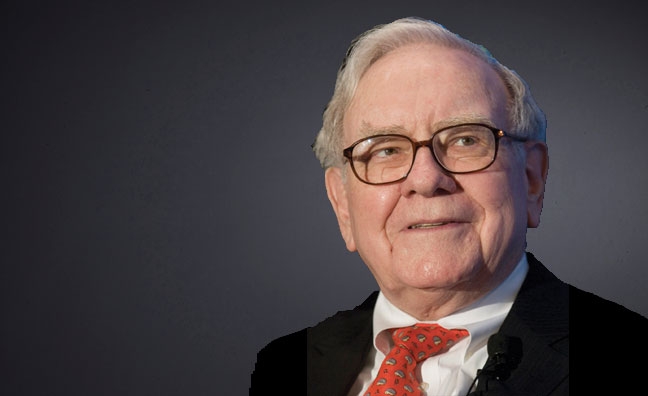Frank Byrd was a 25-year-old stockbroker at Merrill Lynch in Memphis when he first read Warren Buffett’s annual letter to Berkshire Hathaway shareholders. He recalls thinking, “It’s the first thing that I read that I said, ‘This makes sense.’ ” Byrd had noticed that his clients who did the best in the market hardly ever traded; like Buffett, they bought stock in companies they admired and stashed it away for years. “I knew it wasn’t theory,” he says. “I knew it worked.” He later decided to study investing at Columbia Business School—Buffett’s alma mater—and then worked for 15 years in the hedge fund industry.
The billionaire investor has been on Byrd’s mind recently. Buffett inspired a generation of financial pros to believe beating the market was possible, but lately, he’s been lecturing about how money managers and investment consultants aren’t, on the whole, worth their fees. He’s become an outspoken booster of low-cost funds that passively track stock market indexes such as the S&P 500. Last October, Byrd was invited back to Columbia to give a talk on Buffett. The question at hand: “Why is our hero, Warren, steering people away from active managers?”
That question is sure to get more attention soon. Buffett’s annual letter is coming out on Feb. 25, and he’s promised to delve into the topic again. “I’m really eager to read it,” says Paul Lountzis, a money manager who worked early in his career at Ruane, Cunniff & Goldfarb, a firm started by Buffett’s friend Bill Ruane. “I don’t think he means that everyone out there is trying to bilk the client,” Lountzis says. “But it is frustrating when a client calls you and says, ‘Warren said this.’ ”
Three decades ago, Buffett delivered an influential speech at Columbia called “The Superinvestors of Graham-and-Doddsville,” describing the results of a small group of investors he knew, including Ruane. All had significantly outperformed the market by following the strategies laid out in a classic investing textbook by Benjamin Graham and David Dodd. Buffett’s key message: Markets can be faddish and emotional, and intelligent investors can use that to their advantage. He hit on the theme for years in his annual letter.
In the letter three years ago, Buffett struck a far different note. He said most of the money he was leaving for his wife after his death was going to be invested in an S&P 500 tracker like Vanguard’s 500 Index Fund. “I believe the trust’s long-term results from this policy will be superior to those attained by most investors, whether pension funds, institutions, or individuals who employ high-fee managers,” he wrote. Last April, at Berkshire’s annual meeting in Omaha, he explained why: So many money managers and consultants charged exorbitant fees. The arrangements, he said, “eat up capital like crazy,” so you’d be better off “sitting on your rear end” in an index fund.
The numbers back Buffett up. The Vanguard 500 Index has beaten about 70 per cent of funds that buy the stock of large U.S. companies over the past 15 years, according to data from Morningstar. Hedge funds, too, have underperformed for years, and they’re seeing clients yank money. Buffett himself is a glaring exception to the rule: The share price of Berkshire Hathaway, which holds his investments, gained an annualized 20.8 per cent from 1965 through 2015, according to the company, compared with 9.7 per cent for the S&P 500.
“Here is the most lauded money manager of our times saying, ‘Hey, the vast majority of you guys aren’t worth your weight in fees,’ ” says David Rolfe, chief investment officer at Wedgewood Partners, a Berkshire investor that oversees $7.2 billion. “That’s got to sting, especially for Buffett fans.”
Byrd says Buffett’s attack on money management makes sense when you look at the numbers. Portfolio management and investment advice as a percentage of U.S. personal consumption has soared six fold since the 1980s, when Buffett became a household name. Such fees are a “sinfully high tax” on investors, Byrd says, and must make Buffett mad, given his role in ushering in the boom.
During his years co-managing a hedge fund, Byrd says he rarely had conversations with clients about fees. He’s now working in a different corner of the investing world. Since 2015 his firm, Fielder Capital Group, has been managing money for individuals, focusing on financial planning rather stock-picking. Clients typically pay 0.49 per cent to 0.89 per cent of assets under management, far less than the 1.5 per cent plus a bonus of 20 per cent of profits Byrd charged at the hedge fund. He says his clients are primarily invested in index funds, because they’re inexpensive.
Bottom of Form
The planning business, too, is under pressure on fees, with so-called robo-advisers offering inexpensive automated portfolios. Byrd says some clients still want a bit of hand-holding and personal attention on the money front. Unlike beating the market, those are things a good planner can credibly promise to deliver. “We manage the lion’s share, if not all, the liquid net worth of all our clients,” Byrd says. “That’s, ironically, a much bigger responsibility than I felt running a hedge fund.”























